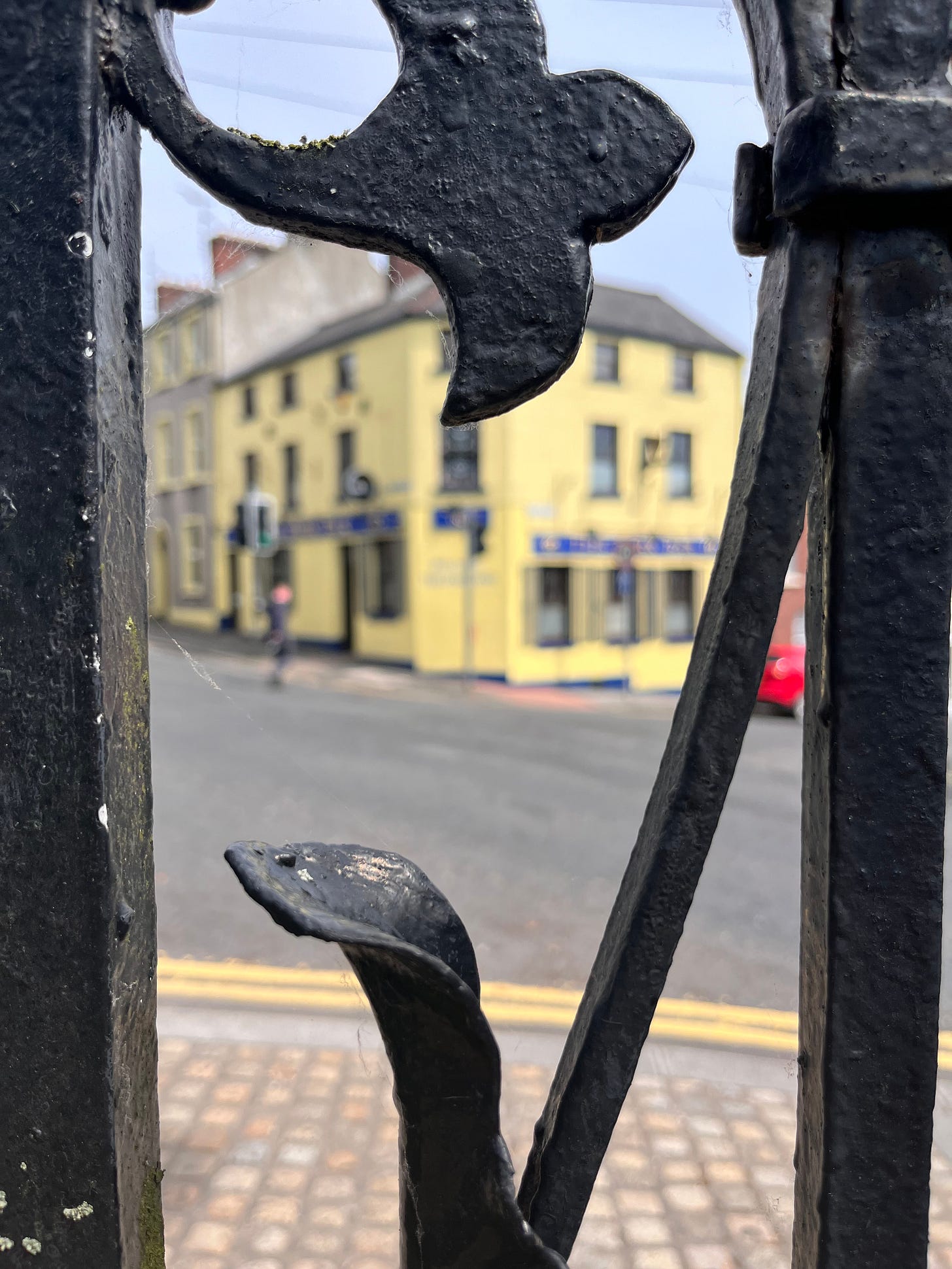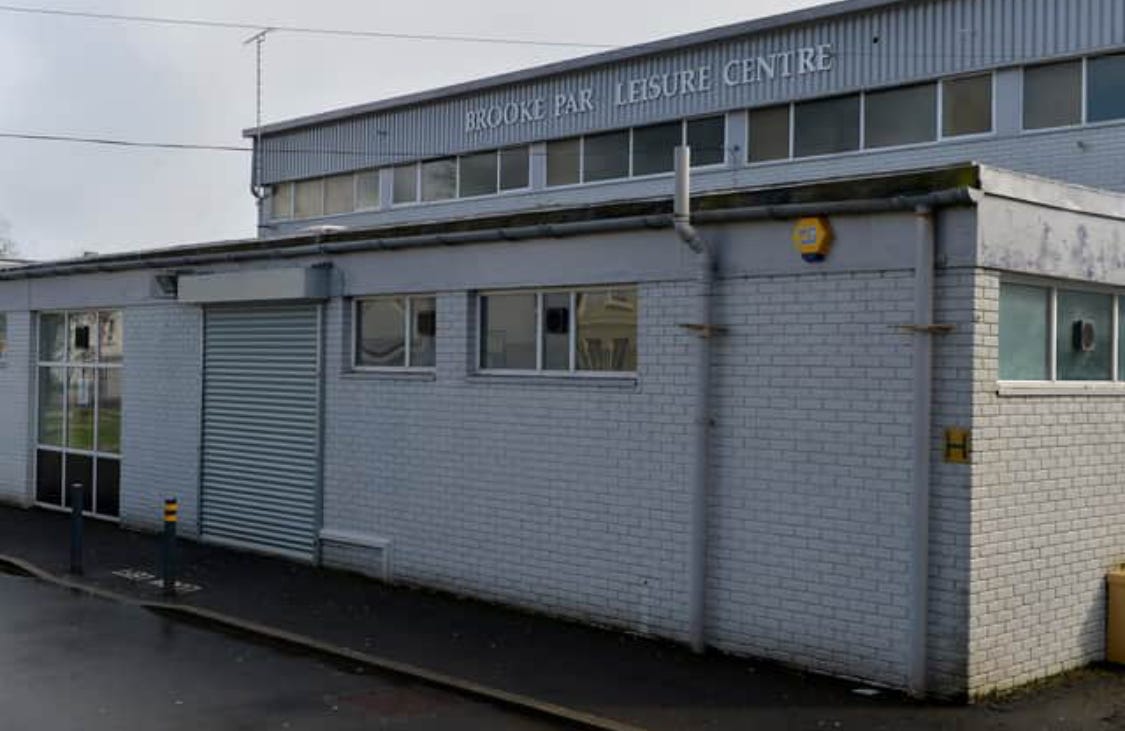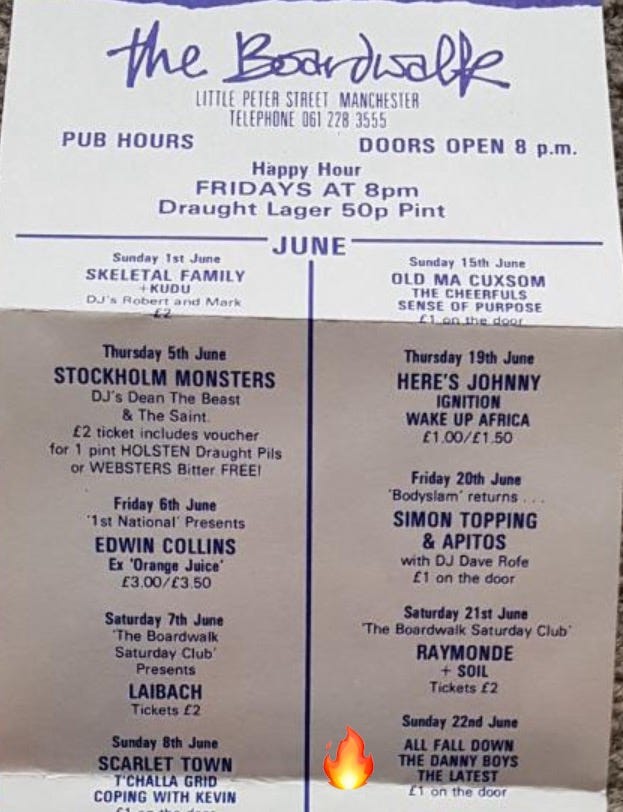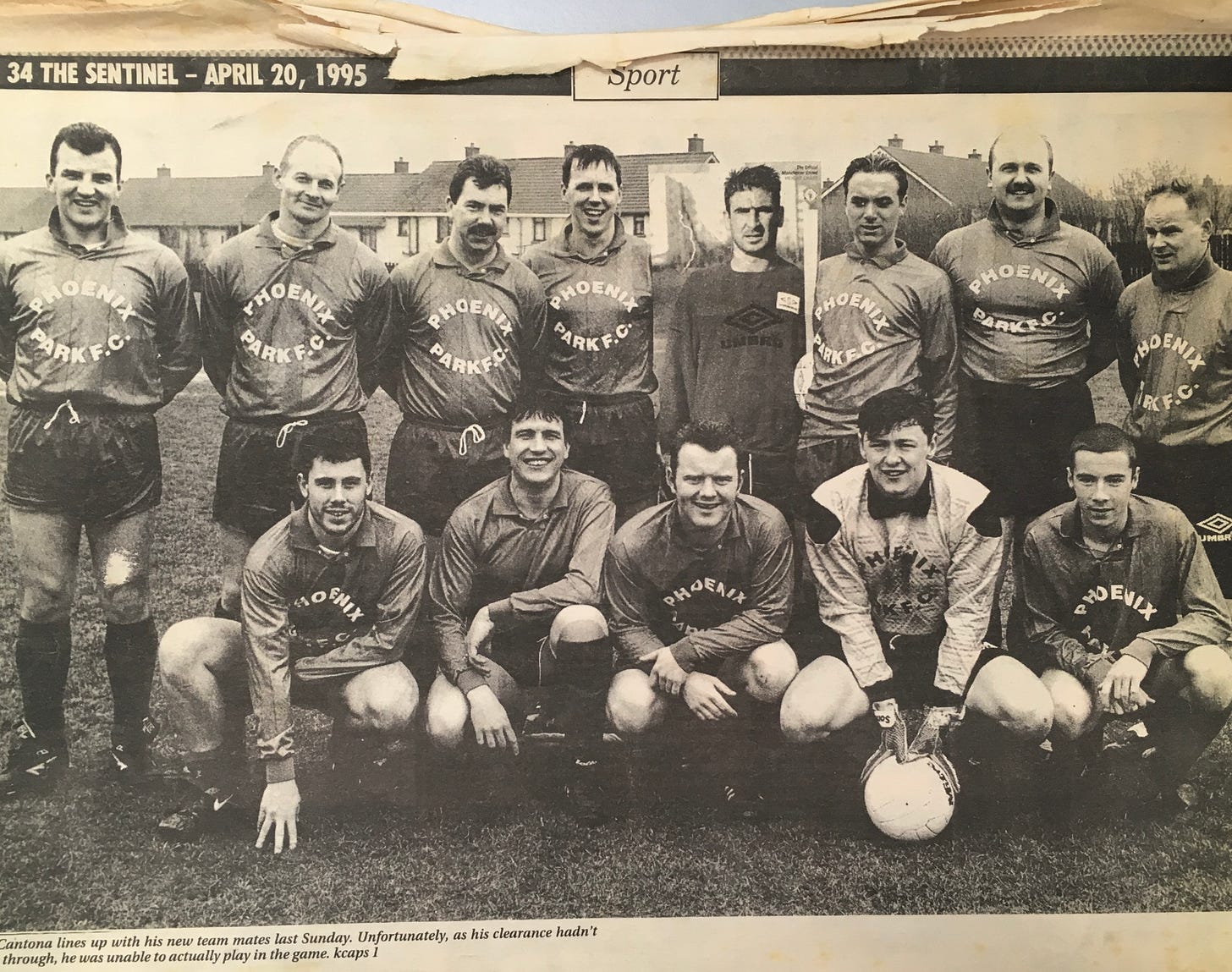The Park Bar sits like a yellow mirage on the corner of Great James’ Street and Francis Street in the Bogside area of Derry. It’s colour and its presence a golden honey pot when compared to the built-up grey surrounding it. The bar, which was established in 1899, presumably gets its name from Brooke Park, which has an entrance at the apex of Great James’ Street about 200 yards up the hill from its front, and only, public door.
Brooke Park itself has a fascinating and at times troubled history, with the establishment of an orphanage on the site in 1839 by The Gwynn Institute who had used £200 from a local linen philanthropist, John Gwynn, to purchase the site. In 1865 another Philanthropist, James Hood Brooke bequeathed a large sum from his will, the equivalent of a million pounds in todays money, to establish a park on the site of the orphanage, for the citizens of Derry, so long as they maintained it in perpetuity, his vision being one that a space would be created for the working class people of ‘Londonderry’ to enjoy leisure activities, mainly on the sabbath. The reins of establishing the park were passed to trustees and the then local corporation after the death of Brooke and his family, and the park was finally opened in 1901. In the present day, the park is a beautiful shock of green that rolls up Creggan Hill until it reaches Rosemount. As well as mature trees and tidy pathways, clean benches that can act as base camps for the steep climb to the top of it, Brooke Park provides a hub not only for the local community in Rosemount, but in nearby Creggan, Hazelbank, The Glen and the various other areas that make up the city. The park was restored following a grant of £5.6 million and opened in 2017.
So, what of the Park Bar? Well, if that front door and the walls inside could speak, they would reveal the voices, characters, stories and history of those past and present-day orphans, going in or out, whether coming or going, and some, taking their leave unknowingly, for the last time, having all added another entry into the bars collective memory. And yes, there are some memories which can never be repeated. And The Park Bar may just be unique, due to it being situated directly opposite not just a church, but a beautiful, soaring Cathedral, straight out of some dark Irish fairy-tale. Glaring at each other, these gates and this door are portals into two other worlds, there is the high, forbidding spire St. Eugene’s as it looms in granite and further down, stained glass, watching and waiting, patiently, implacably, balefully observing the comings and goings of The Park Bar’s dark wooden commoners front door, safe in the knowledge that if its own grand walls of could speak themselves, they would say that we will always be waiting for the next tithe, to pay for the effrontery at its very doors, only 10 yards away, across the intersection of Francis Street and Great James Street.
And I am of that orphanage also. I have added my voice to the clamour, to the memory. In my own dark fairy tale, I was drawn to The Park Bar, and it had become my local, and my focal point, my own institution, after the pubs and bars that I had frequented ‘down the town’, changed their dynamic and I got older and began to need something different myself. The Park was small, but spotlessly clean and well run. It pulled me, coaxed me and eventually we adopted each other, as so many had before and continue to do so now, reverse engineering John Gwyn’s original hope and vision in the pursuit of safety, conviviality and brotherhood and a direct line via walkie talkie, to City Cabs on William Street, to get home. I started drinking in the Bar, ended up working in it for a short while and met my wife in there. It seemed that every misplaced footstep that I had taken from when I escaped forward to this city, all the mistakes I had made, all the bad decisions that I had taken, all of the people I had let down, the faltering and stuttering steps that I took down this strange path that I had stumbled upon, falling many times, but rising again, lead me to The Park Bar that night, in the middle of the City of Derry Jazz Festival, to see a Michael Bublé tribute band. I’d never bought or listened to, a Michael Bublé record in my life and yet here I was, for the craic. In The Park Bar there is the furniture and then there is the furniture.
One Saturday night in June 2008 a group of men gathered in the upstairs bar of The Park. It was in the middle of the ‘Euros’ football competition that was being jointly hosted by Austria and Switzerland and it’s hard for me to remember the exact night other than that the competition ran from the 7th to the 29th of June. However, I do know that it was the kind of night that is taken for granted in the June of our youth but what we regret not having made more of later in a cold December of a much older age. Mellow heat and light and skies to match. The upstairs bar of The Park was rarely used, apart from the hatch, match and dispatch events that the cathedral and other churches and chapels in the city, sent its way. Men and women came of age in the room also, whether 18 or 21 and the odd 40th, 50th and 60th also made an appearance. We were there for a 25th. Twenty-five years of Tuesday and Friday night five a side’s in the Brooke Park leisure centre. Twenty-five years of 10 men convening to scream and shout and occasionally kick a ball. I have lost count of the number of indoor football matches that I have lost in that hall and I have played with and against men who have travelled from the Waterside or even over the border on even the worst of winter nights, to enjoy a game of heckling, screaming, sly elbows to the ribs, kicks to the ankle and language that would make Quentin Tarantino blush, as ageing men, who have been friends for life rage at each other about life and death issues like whether their opponent had been ‘inside’ or not. ‘Inside’ being the vague kryptonite zone in which no player could step for fear being harangued by his opponents, that he had encroached the DMZ of the goal area, and not the ‘inside’ of The Crumlin Road jail or the H Block. Some football did occasionally break out with those ubiquitous oversized dayglo green tennis balls, familiar to many men of all shapes and sizes who had, in this case, every Tuesday and Friday at 8pm, strapped on their knee supports and squeezed into that ‘lucky’ Leeds United shirt that was twenty years old or even that vintage ‘Smithwicks’ branded Derry City shirt that had invaded the high ways and byways of Ireland following the team back in the early 80’s. Of course, now, practically all of the selected attire was either 5 inches too tight, too small or too short and sometimes all of the above.
Here was the classic buffet of sausage rolls, triangle sandwiches of all kinds, cocktail sausages, chicken legs, the kind seen on a plate and not on some of the players, vol au vaunts, potato salad, coleslaw, you name it. There was beer, lots of beer and more significantly, lots of Guinness, for if the modern Park Bar is famous for anything in Derry, and in Ireland in fact, it is due to the quality of its draught stout and how it is kept and served.
And there was also a karaoke machine.
I felt comfortable in the crowd. I had been a ‘local’ in The Park for many years now and loved the place. In a similar way, I had known and played football with some of my fellow attendees for nigh on 20 years, whether that be as a fill in in the Tuesday and Friday night games, or in a pub 11 a side team that played in the local Derry and District League under the auspices of The Phoenix Bar, which was owned ironically, by the owners of The Park Bar. The Phoenix was a bar that was situated near the bottom of Park Avenue which ran down past the top of Brooke Park. In Derry, I had learned, sometimes to my cost or more so, embarrassment, nearly everything is local.
The night was going well, as we all tucked into the buffet and lashed pint after pint into us. There was the usual ‘slagging’ between individuals and groups about various issues, tales of back in the day and ‘I mind the time’ and other unprintable and unmentionable events as the night became more raucous.
Then someone switched on the Karaoke machine.
Looking back now over 35 years to the loves of my life in Salford; Manchester and its music scene, the band that I had formed, called ‘The Latest’ with my mates in the very early eighties, Manchester United Football Club and going to the match, playing amateur football, my involvement in anti-fascist politics, that, was now, by the end of the decade, beginning to diminish in importance. The band had begun to fracture, go off key. The hours that we had spent together practising our songs – my songs – had melded us together so that we were shit to a blanket tight. The hawking for gigs in and around Salford and Manchester, the shifting of drum kits and guitars and amps in and out of cars and vans, the handballing of speakers up and down dingy back stairs, our residency at The Bridge Pub on Lower Broughton Road – now knocked down - where we had rehearsed twice a week up the stairs, had us sharp. Playing gigs in and around Manchester and Salford over a period of about 5 years made brothers of us despite our football differences. There were two Reds, guitarist Chris Britton and me, and two Blues, singer John McCann and drummer Wayne Price. The football was important, and the music was important. Imperative for all of us. it was ever present. And nothing speaks to this as much the infamous ‘Hand of God’ match between England and Argentina in the quarter finals of the World Cup of 1986. It was Sunday the 22nd of June and The Latest were playing again at the now legendary ‘The Boardwalk’ in Manchester that night. Along with all the speakers, instruments, Tom Tom’s and Mike stands, Chris had brought along a small portable television so that we could watch the match before we did our sound check.
It was handball, for definite.
The Brooke Park five a side lads would never have allowed it; ‘hands’ they would have screamed, had it happened in a game on a Tuesday or Friday night. But because it was England, and because of their soldiers, and Bloody Sunday, and operation Motorman, and the raiding of houses, and the check points and the hundreds of types of daily harassments and inconveniences, and because of the Malvinas as well, they cheered and laughed their heads off at perfidious Albion, getting it right up them. And in the famous Boardwalk, I had celebrated too in a quiet way, as my three band mates, all England fans, cursed and moaned about those ‘cheating Argies’.
Here I was in The Park Bar, in the Bogside in Derry, celebrating 25 years of friendship, camaraderie, love and football and I felt privileged to be part of it. These men had accepted me for what I was and in the case of the Sunday morning eleven a side team, Phoenix Park FC, had allowed me to go into battle with them, on a proper football pitch, kickin and gougin in the mud, the blood and the dirt. I was among friends and teammates. Or so I thought.
Having played in a band for years therefore, in front of some big crowds as well, we had even been reviewed in the New Musical Express once, having recorded my songs multiple times, been in the local press and on radio to talk about our music, you would think that a karaoke machine would hold little or no fear for me, a hardened musician. But that could not be further from the truth. There was a reason why I hid behind my bass guitar and hardly ever looked at the crowd, only occasionally stepping forward to give the very odd backing vocal. John was such a brilliant singer and presence on the stage, it was enough for me to load the gun and let him fire the bullets. Or maybe that’s not a great analogy. I didn’t have the worst voice in the world, and I could get in tune, but there was little or no power in it. I couldn’t project it, so staring at this karaoke dalek gave me the total collywobbles. And I knew my time would come. It’s strange how quickly people can sober up, as I started too, knowing that at some point I would be there in front of everyone, including the bar staff, who I knew well given the amount of time I spent in the bar downstairs, microphone in hand ready for the words of the song I had chosen. And this choice only added to my angst. What would it be? Let it Be? Be My Baby? I’ll Be There? I just wanted it to be over.
Inevitably my turn came and forward I stepped. No hesitation and no fear. No stage either, just a large screen for the words to scroll across. I grabbed the microphone like I did it every weekend, and the MC asked me what I wanted to sing so that he could programme the karaoke machine. Over the years, like everybody else. I have been faced with situations where I have always tried to step forward into the unknown. Gone into that room where events could go right or wrong or taken a decision to do something that could cost me personally, but that felt the right thing to do at the time. It hasn’t always worked out, but at least I knew, I had tried my best, or had worked hard, and here I was again, stepping into another void, because there was no fucking way I was going to duck this in front of these men. It would be like not buying your round.
‘Dirty Old Town’ – The Pogues version - was a perfect song for the occasion. Despite the claims from various quarters, including I’m sure, some of my teammates, the song is not about Dublin, and it is most definitely not about Belfast; it’s not about anywhere in Ireland at all, but universal, of the world and all places in its yearning and its dreams. The song is in fact, originally about my home city of Salford in its dirty and depressed Industrial past and was written by the Salford born songwriter Ewan McColl and I love it. Here was a perfect opportunity for me to make that point to all these philistines smirking in front of me, and even I was a better singer than Shane McGowan, wasn’t I?
The MC asked me what song I wanted to sing so he could get it set up. Inexplicably, the words ‘Everybody Wants to Rule the World’ came out of my mouth. What the actual? Was it the light of the night that took me back to similar balmy summer nights watching the video jukebox in The Bridge Inn on Lower Broughton Road play this song again and again, with its sundowns and motorbikes? I don’t know. All I did know right then and there, was that the MC had queued up the song in seconds and handed me the microphone as the familiar bow wow of the songs intro barked into life. With my back half turned to my teammates I was so glad that ‘I had almost made it’ and wished with all my heart and no sorrow whatsoever that it would ‘fade it’ as quick as possible to end the collective embarrassment in the room.
As the song died and I squirmed, there was a shout, a roar, as they say in Derry. A familiar noise that had been the sound of many of my Sunday mornings, stood beside me on the pitch in rain, hail, wind and even snow.
‘Sit down you English Bastard and let someone up who can sing’.
It was the second time that the roar had said this to me in several weeks, in front of people, many that I knew.
And the roar came up to me laughing and to everyone who he knew far far longer than I, that sat in the room and said nothing. And as he snatched the microphone from my hands, I had managed to compose myself enough to reach back into my mind and remember this; something that someone had told me about him. As an aside in a conversation:
‘Really?’ I retorted. ‘Tell me, where were it was that you were born again?’ and our company hooted when they heard this. For they knew.
And the roar laughed at me with no shame and no sheepishness, he knew I knew, and he knew it was a good comeback. Like a ‘slap in the bake’
‘Birmingham’
The bedlam in the room, tasted sweet.
In the years since, it’s about 16 years I believe, and I have seen the roar once. A few months after that night.
When he could roar no more.
He could manage only two words as he looked up to me and I bent down to him.
‘Man United’












Brilliant piece on what is a brilliant bar!!!